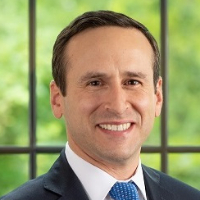Milford Center Bankruptcy & Debt Lawyer, Ohio
Sponsored Law Firm
-
 x
x

Click For More Info:
-
R. Lasko Co. LPA, LLC
1406 W 6th St STE 200, Cleveland, OH 44113» view mapBusiness, Estate, Real Estate, Employment Competent Legal Representation
Let R. Lasko Co. LPA, LLC handle all your legal needs today!
216-574-2602
Troy Doucet
✓ VERIFIEDBankruptcy & Debt, Foreclosure, Consumer Rights, Lawsuit & Dispute, Contract
Experienced Loan, Mortgage, and Foreclosure Defense Lawyer
Attorney Troy Doucet is a Columbus, Ohio lawyer who represents consumers and businesses with complex problems. Troy’s years of work in the mortgage ... (more)
Carolyn Diane Eselgroth
Commercial Real Estate, Agriculture, Business Organization, Dissolution
Status: In Good Standing
FREE CONSULTATION
CONTACTMichael Thomas Gunner
Real Estate, Litigation, Lawsuit & Dispute, Bankruptcy
Status: In Good Standing
FREE CONSULTATION
CONTACTFREE CONSULTATION
CONTACTJohn Francis Cannizzaro
Estate, Criminal, Bankruptcy & Debt, Accident & Injury
Status: In Good Standing Licensed: 45 Years
Thayne David Gray
Real Estate, Government, Corporate, Commercial Bankruptcy
Status: In Good Standing Licensed: 45 Years
 Ronald Lasko Cleveland, OH
Ronald Lasko Cleveland, OH AboutR. Lasko Co. LPA, LLC
AboutR. Lasko Co. LPA, LLC

